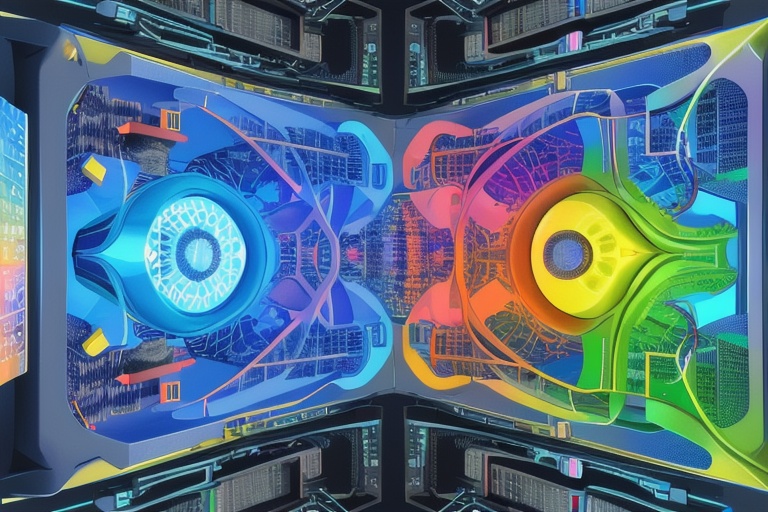The integration of artificial intelligence (AI) into various industries has marked a transformative era in the technological landscape. More than just a buzzword, AI has become a pivotal element in the growth and innovation strategies of enterprises across the globe. This technological revolution has had a profound impact on the marketing sector, offering brands an unparalleled opportunity to tailor their communications, understand consumer behavior, and foster loyalty like never before. In the following discussion, we will dive deep into how five iconic brands have harnessed the power of AI to redefine their marketing strategies and connect with their customers in novel and effective ways.
The integration of artificial intelligence (AI) into various industries has marked a transformative era in the technological landscape. More than just a buzzword, AI has become a pivotal element in the growth and innovation strategies of enterprises across the globe. This technological revolution has had a profound impact on the marketing sector, offering brands an unparalleled opportunity to tailor their communications, understand consumer behavior, and foster loyalty like never before. In the following discussion, we will dive deep into how five iconic brands have harnessed the power of AI to redefine their marketing strategies and connect with their customers in novel and effective ways.
Artificial Intelligence in Brand Marketing
Artificial intelligence's role in innovative marketing is underscored by the way it can personalize consumer experiences, streamline operations, and leverage data analytics for optimal outcomes. It's fascinating to see the creative avenues through which firms integrate AI technology into their daily operations, setting new standards for market engagement. Let’s explore these five brands and how they've incorporated AI to enhance their marketing prowess.
Coca-Cola's AI-Powered Strategies
Coca-Cola, one of the world's most recognizable brands, has made significant strides in integrating AI into its marketing roadmap. A striking example of their commitment to AI is their collaboration with management consultancy firms and AI research organizations, employing tools such as ChatGPT and DALL.E to spearhead personalized marketing drives and enhance their operational efficiency.
In Japan, Coca-Cola introduced a technologically advanced vending machine loyalty program, which customers can engage with using their smartphones. This initiative underscores the dual benefits of AI: augmenting the consumer experience and simultaneously collecting valuable data to inform future marketing strategies.
Amazon's AI-Driven E-Commerce
Amazon has long stood at the vanguard of AI utilization, weaving it into the fabric of its e-commerce empire to offer a highly customized shopping journey. The company's recommendation algorithms are at the heart of this, using data like previous purchases, browsing habits, and search queries to suggest products that resonate with the individual customer's preferences.
Additionally, Amazon has significantly disrupted the way we shop by introducing Alexa, through its Echo devices. Alexa's ability to process voice commands for shopping brings a new dimension of convenience and accessibility, further propelling Amazon's reputation as a leader in tech innovation.
Nike's Customization Through AI
Nike, famed for its sporting apparel, has turned to AI to offer distinct, personalized experiences. Utilizing AI platforms, Nike allows customers the joy of designing their footwear. This personal touch fosters a deeper connection between the brand and its customers, driving sales while also generating insightful data on consumer preferences.
These initiatives demonstrate how Nike's approach to AI not only retains customers but deepens their brand allegiance by delivering products that are attuned to their unique tastes and desires.
Netflix's Content Tailored by AI
Netflix, a titan in the streaming service industry, has always been ahead of the curve in embracing AI. Using machine learning algorithms, Netflix curates personal viewing recommendations that align with individual users' tastes—proving so effective that 80% of viewership is driven by these suggestions.
But Netflix’s AI integration does not stop there; it also optimizes the streaming quality for each user, creating a smooth, uninterrupted viewing experience that helps to maintain and increase user engagement.
Sephora's Beauty Experience Enhanced with AI
Stepping into the realm of beauty, Sephora has integrated AI tools to transform how customers discover and interact with their products. From helpful ChatBots to the Sephora Virtual Artist that allows virtual try-ons and tutorials, Sephora provides a level of convenience and customization that is hard to match.
Moreover, with tools like Color IQ for precise foundation matching and Fragrance IQ to help test scents virtually, Sephora’s use of AI demonstrates the potential for technology to drastically elevate the customer experience and revolutionize retail.
As we have seen from Coca-Cola's hyper-personalized campaigns to Sephora's virtual makeup trials, AI's application in marketing is not just a fleeting trend—it's a profound shift in how brands connect with their customers. By leveraging sophisticated algorithms and data analytics, companies can deliver highly targeted, customer-centric experiences that not only satisfy but also inspire loyalty.
The future of AI in marketing looks bright and boundless. With each technological advancement, we can expect even more innovative applications to streamline operations, customize experiences, and enhance brand-consumer relationships. Keep your eyes peeled for the second installment of this blog series, where we will delve into additional pioneering examples of AI’s role in redefining marketing strategies.
Information for this article was gathered from the following source.




